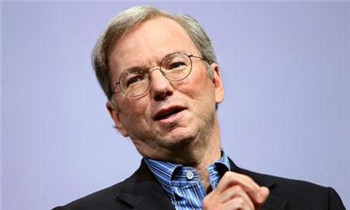(单词翻译:单击)

When Deutsche Bank named John Cryan as its new chief executive three weeks ago, the commentary had an insidious subtext. He has “an enormous brain”, one friend told the FT. “Very thoughtful,” said a former colleague. Ominously for Mr Cryan, these comments echoed those made about Vikram Pandit when he unexpectedly stepped down as Citigroup’s CEO in 2012. He was “too cerebral”, said critics of the Citi boss.
当德意志银行(Deutsche Bank)在不久前任命约翰•克赖恩(John Cryan)为新首席执行官之后,他人的评论有种别样的意味。克赖恩的一位友人告诉英国《金融时报》,克赖恩有一个“绝顶聪明的大脑”。他的一位前同事称他“思维缜密”。这些评语对克赖恩来说却不太吉利。2012年潘伟迪(Vikram Pandit)意外辞去花旗集团(Citigroup)首席执行官一职时,当时对他的评语与此如出一辙。批评者说,这为花旗老总“太理智”。
The implication in both cases is that being a brainbox is a disqualification for running some of the largest and most technically complex companies. I was brought up to respect and pursue academic success, but while it grates that the world believes analytically minded swots rarely make great business leaders, the world is right (even if Mr Cryan ultimately turns out to be one of the few exceptions).
这两个例子告诉我们,绝顶聪明的人并不适合管理一些规模极为庞大、技术极其复杂的公司。我从小就尊崇学术成就,并以此为目标,当我发现这个世界相信一个善于分析、刻苦学习的人很难成为伟大的商业领袖时,感到很是烦恼,但世界是正确的——哪怕最终证明克赖恩是为数不多的例外之一。
No less an intellect than Bill Gates told an invited FT audience last week that his background (learning about the world by reading an encyclopedia, starting at A for Aardvark) made him think at first that the obvious corporate hierarchy would be one based on IQ, with the brightest at the top.
比尔•盖茨(Bill Gates)绝对是位高智商人士。近期盖茨在接受英国《金融时报》专访时告诉现场观众,他的知识背景曾经令他认为,企业层级结构应基于智商,最聪明的人应该位于最顶层。盖茨了解世界的方式是阅读百科全书,他学到的第一点知识是字母“A”打头的“土豚”(Aardvark)。
It took only a few years running a business for Mr Gates to realise he had made a colossal error, one that would have doomed Microsoft had he pursued it. “By the age of 25, I knew that IQ comes in different forms,” he said. “[Understanding] sales and management seems to be negatively correlated with writing good code or understanding physics equations. That was befuddling for me.”
经营公司没几年后,盖茨就认识到自己犯了个巨大的错误,如果他继续这个错误,微软势必要失败。他说:“25岁时,我发现智商有不同的表现形式。(知道了)销售和管理似乎与编写优秀的代码或理解物理方程呈负相关。这让我感到困惑。”
Mr Gates was brought up in an age when IQ testing was popular, before it was revealed that the tests themselves could disadvantage some groups and that such tests measured attributes that were irrelevant in some workplaces. Would you, for instance, rather be rescued by an out of condition firefighter with Mensa membership or a fit one of average IQ with a decade of experience in extinguishing infernos?
在盖茨成长的年代,智商测试开始流行,后来才有研究揭示这些测试本身会对一些群体不利,而且此类测试所衡量的品质对一些工作来说无关紧要。比如,你希望前来营救你的消防员是一个有门萨会员资格,身体羸弱的人;还是一个智商为平均水平,体格健壮,有十年灭火经验的人?
The FT asks successful people in its weekly Inventoryfeature if they have ever undergone an IQ test. Many have. But none that I can recall has said the result had any bearing on their later success. There is a reason why the description of Enron’s senior executives as “the smartest guys in the room” was a harbinger of dysfunction and disaster and not a qualification for flexible leadership.
在每周的Inventory专题里,英国《金融时报》会询问那些成功人士是否接受过智商测试。许多人都接受过。但据我回忆,没有一个人表示测试结果对他们日后的成功产生过任何影响。安然(Enron)的高管们被形容成“房间里最聪明的人”,该评价预示了异常和灾难,而非说明他们具备灵活的领导力,这是有道理的。
Yet even though the idea that chief executives are omnipotent is fading, the myth of the omniscient corporate boss persists. Leaders remain reluctant to admit publicly that they simply cannot know everything about their business, until an operational blunder or a scandal reveals the truth.
然而,虽然人们渐渐不再认为首席执行官应该无所不能,公司老总无所不知的神话依然在流传。领导人仍然不愿公开承认,他们根本无法对自己企业的各方面了若指掌,除非一次经营失误或一场丑闻才能揭露这一真相。
One reason CEOs try to appear all-knowing is that their public appearances — the analyst briefing, the television interview, the conference panel — place unrealistic pressure on imperfect individuals to demonstrate perfect knowledge. At such events, executives are preoccupied with not appearing thick. It would be far more realistic and refreshing if they admitted that, day to day, they often call on lieutenants to answer tricky questions.
首席执行官们努力表现出全知的样子,原因之一就是各种公开露面——分析师简报会,电视采访,讨论会——使他们承受了不现实的压力,他们作为不完美的个体,却要做出具备完美知识的样子。在公开场合上,高管们要全神贯注,不能露出无知的样子。如果他们能承认,每天他们都得经常请副手解答棘手问题,那将会实事求是得多,也会令人耳目一新。
The best chief executives do not spend hours alone, applying their “enormous brains” to business problems. When academics from Warwick and Oxford Saïd business schools followed leaders in the healthcare sector for a study published in the latestMIT Sloan Management Review, they found that each built a “personal knowledge infrastructure”, which consisted of many elements. This infrastructure includes time for thought — one health manager had what he called a “train pile” of research that he could read while travelling. But it also allows for visits to the wards in off-hours to spot problems, analysis of a data “dashboard” of corporate performance and consultations with an inner circle of colleagues.
最优秀的首席执行官不会用自己“绝顶聪明的大脑”一个人花许多时间去解决业务问题。最新一期《麻省理工斯隆管理评论》(MIT Sloan Management Review)刊出了一份研究报告,来自英国华威商学院(Warwick)和牛津大学赛德商学院(University of Oxford Saïd)的学者在研究了医疗行业的领袖后,发现每个领导者都建立了“个人基础知识结构”,该结构由许多要素组成。其中包括用于思考的时间——一位医疗公司的管理者会在旅行中阅读研究资料,他说自己要读的资料多到“车载斗量”。他们也会在工作之余探访病房,以发现问题,分析公司业绩的数据“仪表盘”,以及与重要的同事商议问题。
I see two intelligent ways that clever leaders can apply their IQs: as entrepreneurial founders and as part of a balanced team. Mr Gates did not propose snuffing out bright sparks in business, or switching them for executives with the more modish “EQ” of emotional intelligence. He talked instead about the importance of fishing from three different “IQ pools”. To meet his current philanthropic goals, he says, he tries to mix managers with “scientific understanding, business analytics and a passion for being out in the field”. The same should go for all organisations: leading them in any other way would be plain stupid.
我认为,聪明的领导人要想发挥他们的智慧,有两条途径较为明智:作为企业创始人,以及作为一支成员角色互补的平衡型团队的一员。盖茨没有建议把那些商业上的聪明人排除在外,或用高情商(这个词现在更为时髦)的主管来替换他们。相反,他谈到了从三种不同“智商的人才”里选人的重要性。盖茨说,在自己当前从事的慈善事业中,他设法挑选三种不同类型的管理者,他们分别具备“科学理解能力、商业分析能力,以及实地考察的热情”。所有组织都该采用这一思路,别的管理方式都不明智。


